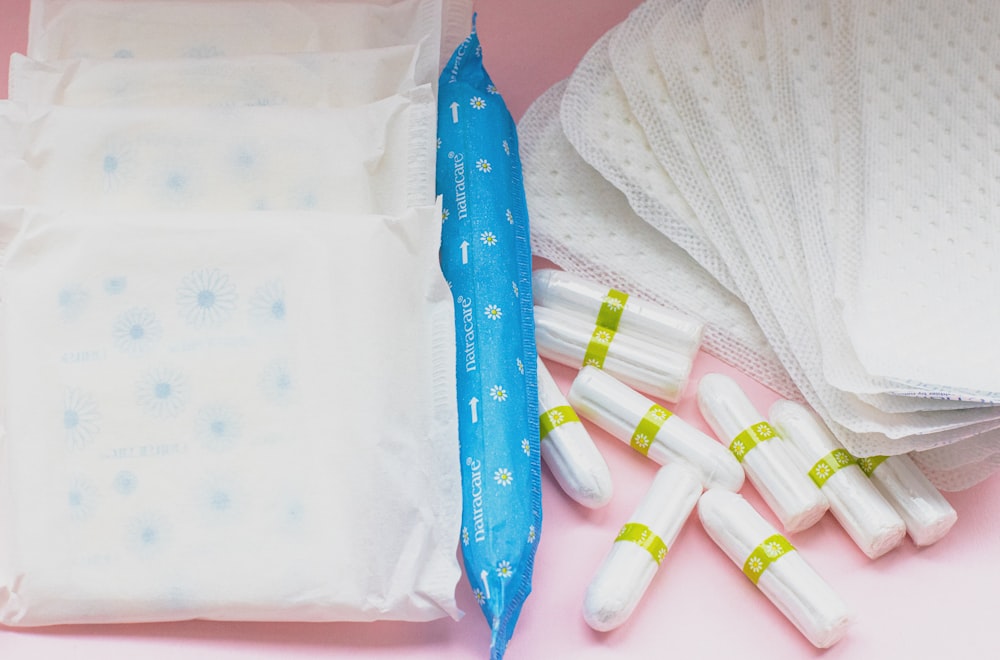During your menstrual periods, you may experience both emotional and physical changes. While all women may experience symptoms, the indicators that you should expect your period tomorrow might differ from those of your friends and relatives.
Hormone levels change as your body prepares for the fourth and last stage of your menstrual cycle, creating visible shifts in mood and physique. Signs that your period is approaching can appear up to two weeks before it comes. Some symptoms may become more severe as the date approaches.

What happens in the days leading up to the start of your period?
Let’s begin a few weeks earlier, at ovulation, to better comprehend what happens shortly before your menstruation. An egg is released from one of your ovaries in ovulation. If not fertilized, this egg will be shed during your period, together with the uterine lining that was preparing for pregnancy that month. It’s all up to your hormones for creating this situation.
- Estrogen, the hormone in control of the female reproductive system, drops just before menstruation.
- Progesterone, a hormone that aids in the preparation of your body for pregnancy and aids in the nurturing of a fertilized egg in your womb, decreases.
- The production of prostaglandins, lipids with hormone-like effects on the body, rises.
Your uterine muscles flex as a result of these changes, allowing the built-up uterine lining to exit the body. So, how can you know if you’ll have your period the next day? Well, there’s no one-size-fits-all approach to this, since women all go through periods in distinct manners. The following are the most prevalent signs:
1. Cramps in your abdomen preceding your period
One of the most typical signs that your period is approaching is cramping. As per this study, they affect up to 84 percent of people. Prostaglandins are in charge here, as they’re the ones that cause your uterus to contract. Premenstrual cramps vary in severity from one woman to another. The greater the proportion of prostaglandins, the more painful it is.
2. Digestive problems and bloating
The hormonal fluctuation that induces menstruation affects your digestive systems. Salt and water retention are affected by changes in estrogen and progesterone, resulting in bloating and, in certain cases, nausea, constipation, and diarrhea.

3. Breasts that are heavy or tender
It’s not uncommon for your breasts to feel heavy, swollen, or aching before your periods start, which is referred to as cyclical breast pain. The causes are dropping progesterone and estrogen once more. Lymph nodes in the groin area and armpits may expand as a result, making these places sensitive to any form of pressure. This soreness can be alleviated by wearing loose clothing and using a suitable bra.
4. Emotions that swing back and forth
The increased estrogen levels from early in your cycle can make you feel a lot better. However, on the other end, things start to fall apart and your emotional health can suffer as well. Lower amounts of progesterone might aggravate the problem, even more, making you irritable and grumpy. Mood swings can be a warning indication that your period is approaching.
5. Low energy and fatigue
At this stage in the menstrual cycle, exhaustion can be challenging to handle. Progesterone deficiency might make it hard to fall asleep or remain asleep. You may feel lethargic and tired even though you’re sleeping enough.
6. A distinct discharge, followed by no discharge
Vaginal discharge is common during our menstrual cycle and even during pregnancy, and it’s generally an indicator of a healthy vagina. You may observe a white discharge with a gluey consistency some days prior to your period.
This is a sign that your progesterone levels have reached their maximum. Then, as your period approaches, your discharge may completely vanish. As a result, a lack of discharge might be one of the symptoms that your period is on its way.
7. Facial acne
Another clue that your period is approaching is acne. Elevated levels of estrogen and progesterone in the midst of your cycle may cause your skin to produce more oil. Acne develops when extra sebum clogs pores, which is why it arises immediately prior to your period.
8. Backache
As your period approaches, blood flow in the pelvic region increases while blood flow in your lumbar arteries diminishes. Your abdominal walls and the five vertebrae in your lower back, and also the muscles in this region, are all supplied by these arteries. A hurting lower back is another sign that your period is near due to the reduced blood circulation in these areas.

